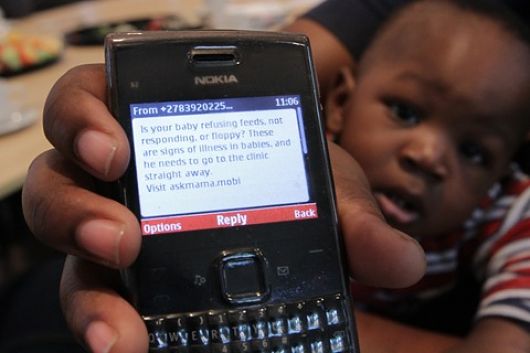MedicSMS Diagnoses Patients Remotely in Developing Countries

A diagnosis could be as quick as a text message away through the program MedicSMS.
MedicSMS is a new way for doctors to give diagnoses to patients in developing countries. The service is provided by means of Artificial Intelligence (AI), an upcoming technology that is gaining credibility and popularity.
Many people in developing countries have access to basic mobile phones. According to the 2015 Ericsson Mobility Report there are 2.6 billion smartphone subscriptions that exist globally. By the year 2020, Ericsson predicts that number will jump to 3.5 billion.
MedicSMS capitalized on growing mobile connections, creating a new way for patients and their doctors to interact when “in-person” is not an option. The program works collaboratively with IBM Watson, a “supercomputer platform” that can “analyze health data” and Twilio, the SMS service used. The machine, using basic question and answer sets, will “reveal insights from large amounts of unstructured data,” according to IBM.
After the data is received from the patient, Watson goes to work. The AI interface translates the SMS into a “likely diagnosis,” according to MedicSMS. The patient is then delivered a set of steps to follow for their newly diagnosed condition.
After a diagnosis is made, patients can start a treatment regimen immediately.
A service similar to MedicSMS, called FrontlineSMS, is seeing success from its pilot project in Malawi, which is the world’s poorest country, according to data from the World Bank.
According to the FrontlineSMS website, the service saved hospital staff an estimated “1,200 hours of follow-up time and $3,000 in motorbike fuel.” The time saved by Frontline SMS could be allocated to other patients in need of “in-person” aid, while the financial resources could be stretched further to assist other people in need.
The MedicSMS AI interface also asks for a location from the patient. That information is logged and transported to local health authorities that can administer extra aid if needed, as well as medication that the patient requires.
The GPS location also allows health authorities to pinpoint where illnesses and diseases are taking place, helping them to be better prepared for future outbreaks of certain diseases.
Harley Katz, one of the Ph.D. members of the MedicSMS team, hopes that soon, health organizations can better understand where the epicenter for diseases and outbreaks are taking place.
“Eventually, we’re hoping to track much more, including where similar symptoms are popping up on the map,” he said.
– Alyson Atondo
Sources: World Bank, Ericsson, IBM, Frontline SMS, Techcrunch, Devpost
Photo: Google Images
